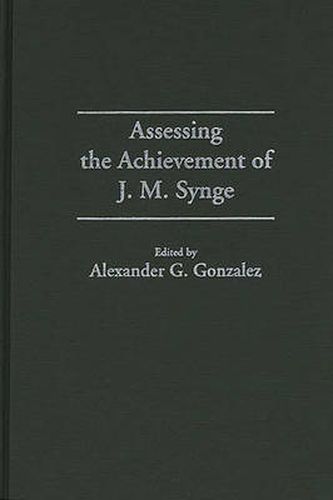Readings Newsletter
Become a Readings Member to make your shopping experience even easier.
Sign in or sign up for free!
You’re not far away from qualifying for FREE standard shipping within Australia
You’ve qualified for FREE standard shipping within Australia
The cart is loading…






J.M. Synge is generally considered one of the most important Irish dramatists, and his standing within the larger canon of world literature usually goes unchallenged. But his reputation may not be standing the test of time. A relative dearth of presentations of Synge’s work at major national and international conferences and even at regional Irish studies conferences suggests that he is not studied as much as he once was, especially relative to other Irish authors such as Joyce, Yeats, O'Casey, and even Paul Muldoon and Eavan Boland. Tolerance for some of Synge’s once-hailed extravagance is also lessening among students of his drama. The expert contributors of this book demonstrate that Synge’s work is of continuing relevance to contemporary audiences and readers. Each of its essays illuminates the worth of Synge’s dramatic canon either by some form of reassessment of individual plays or by comparison of Synge’s work to that of authors whose reputation is still indisputably well established, such as Yeats, or to that of contemporary authors whose work is much in the public eye, such as Salman Rushdie. New approaches, including a feminist study of the language of Synge’s heroines, also help establish the continued relevance of his drama to contemporary readers.
$9.00 standard shipping within Australia
FREE standard shipping within Australia for orders over $100.00
Express & International shipping calculated at checkout
J.M. Synge is generally considered one of the most important Irish dramatists, and his standing within the larger canon of world literature usually goes unchallenged. But his reputation may not be standing the test of time. A relative dearth of presentations of Synge’s work at major national and international conferences and even at regional Irish studies conferences suggests that he is not studied as much as he once was, especially relative to other Irish authors such as Joyce, Yeats, O'Casey, and even Paul Muldoon and Eavan Boland. Tolerance for some of Synge’s once-hailed extravagance is also lessening among students of his drama. The expert contributors of this book demonstrate that Synge’s work is of continuing relevance to contemporary audiences and readers. Each of its essays illuminates the worth of Synge’s dramatic canon either by some form of reassessment of individual plays or by comparison of Synge’s work to that of authors whose reputation is still indisputably well established, such as Yeats, or to that of contemporary authors whose work is much in the public eye, such as Salman Rushdie. New approaches, including a feminist study of the language of Synge’s heroines, also help establish the continued relevance of his drama to contemporary readers.